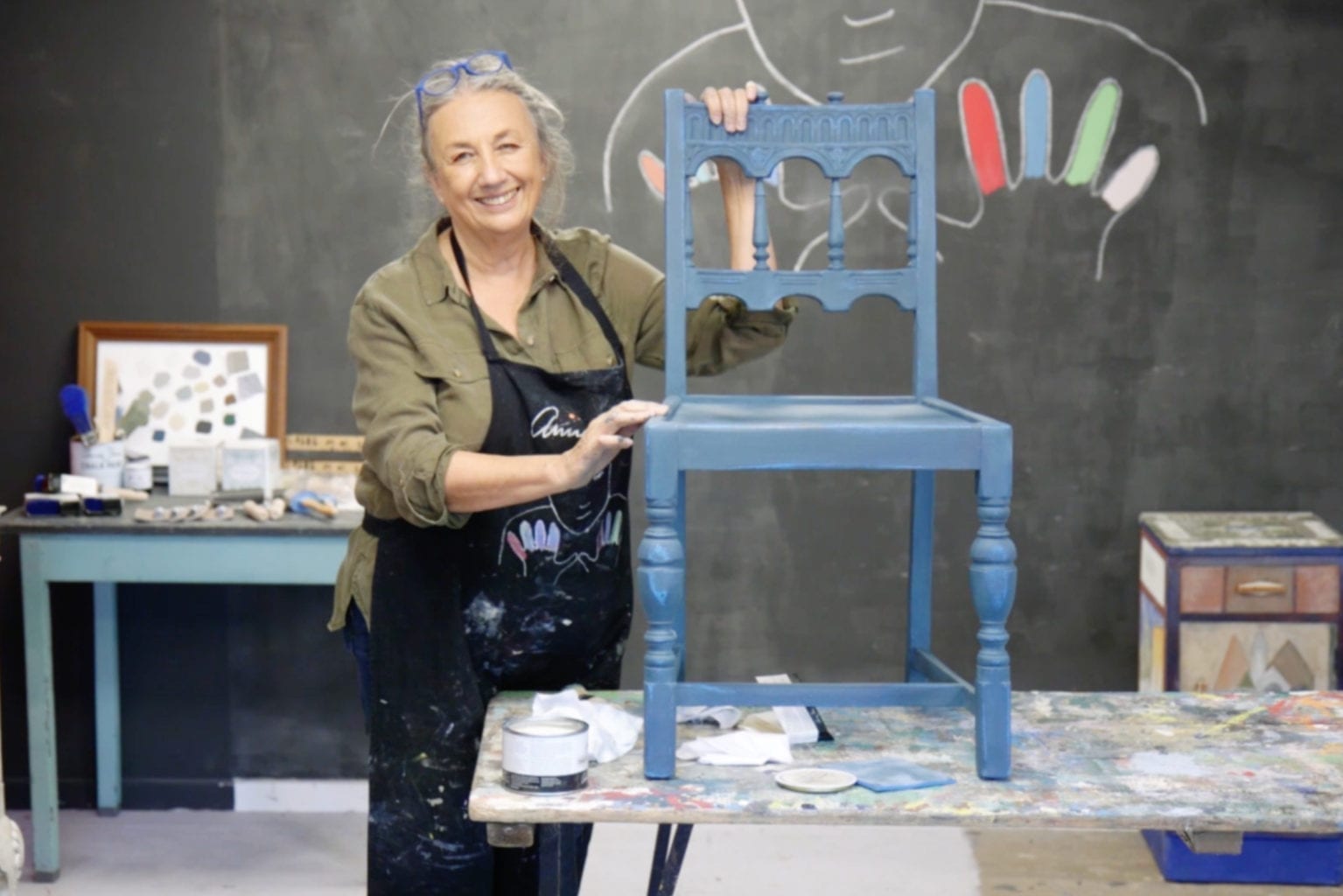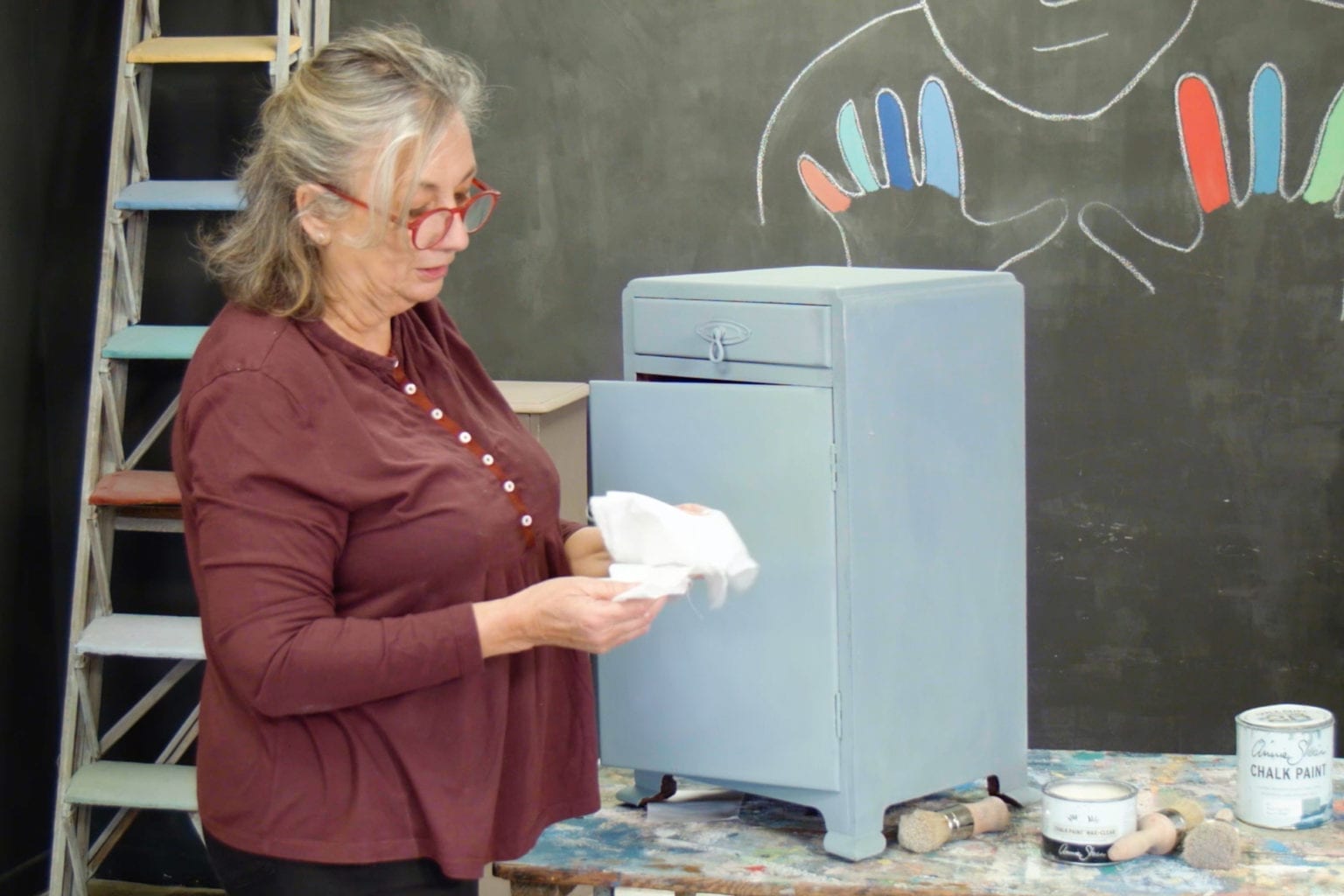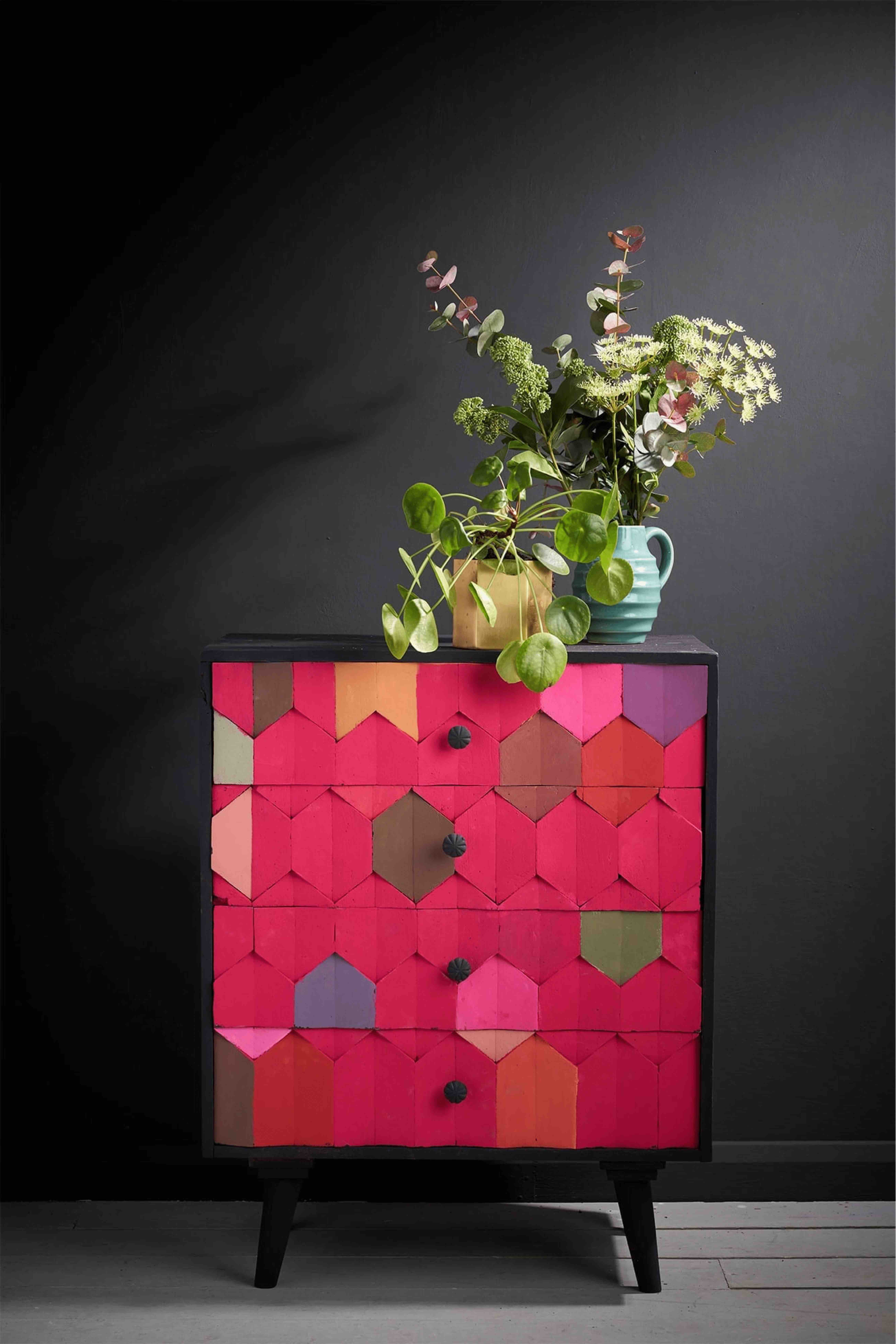If you’re looking to paint you furniture for the first time, look no further than this step-by-step tutorial. Chalk Paint® is a fantastic tool for giving your furniture a whole new look in next to no time. You don’t need to be a professional painter to achieve stunning results – you just need the paint colour of your choice, a brush and some Chalk Paint® Wax to protect your finish.
Whichever piece of furniture you’re painting, you don’t have to worry about sanding or priming first. You can get straight into the fun bit! Chalk Paint® has incredible sticking power and will go onto almost any surface, even varnished pine or laminate. You can apply it thickly for a rustic, textured look or smoothly for a slick modern look. Once you’re happy with the paintwork, it’s time to seal it in for a lasting finish: choose Chalk Paint® Wax for indoor use or Chalk Paint® Lacquer for high traffic areas or outdoor use.
Step by step guide to painting furniture with Chalk Paint®
- Remove any hardware, such as handles, from your furniture if possible.
- Give your piece a quick clean with a damp cloth (avoid any harsh chemicals).
- Stir your chosen Chalk Paint® colour. You can use a stir stick or anything else you have to hand.
- Dip your brush in, and apply the paint straight onto the furniture. As you paint, move the brush in every direction and all over the piece.
- Wait for the first coat to be touch dry. Depending on the climate, this could take 1-3 hours.
- Once dry, apply a second coat in the same manner.
- Wait for the paint to be fully dry.
- Next, apply Chalk Paint® Wax in the same manner as the paint. Use a brush or lint-free cloth to apply in all directions. Work in sections removing any excess with a lint-free cloth as you go. You want to make sure every bit of paintwork has been waxed.
- And that’s it! You can use the piece of furniture as soon as the wax is touch dry, but please note it will take up to 2 weeks to reach its full hardness (known as the ‘curing period’). During this time, take extra care with the piece.
Now you’ve followed these simple steps, you’re ready to get painting. It’s easy to update furniture with Chalk Paint®, whether you’ve inherited an old piece of furniture or found one at a flea market. Perhaps you simply want to update something you already own that doesn’t suit your style anymore. Whatever you choose to paint for your first project, make sure you support your local Annie Sloan Stockist by sourcing all the tools you need from them. You can also find plenty of ideas for your project in our Inspiration pages.


